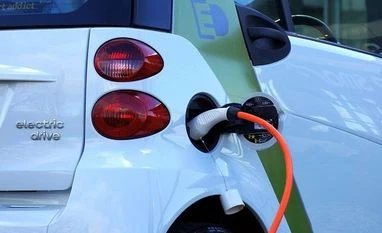The growth in electric vehicle sales in India is likely to continue for the rest of the decade, with two and three-wheelers expected to dominate EV sales in the near future, according to a report.
The jointly prepared report by KPMG and CII, released on Monday, also said that EV adoption is expected to see an inflexion point once all vehicle segments show significant ownership savings over the vehicles powered by internal combustion engines.
The shift to EVs is no longer an uncertainty but only a question of when, the report said.
Adoption levels are expected to see exponential growth in future with developing infrastructure, government incentives and the launch of new EV models, KPMG said in a release.
Technology is at the forefront of the EV revolution. The shift from ICE to EV has increased the electronics content from 16 per cent to 55 per cent in a vehicle with the addition of new features and controls, it said.
Many of these technologies are going to become standard offerings in the future and the addition of newer features/ development of new technology is going to be a continual process.
More From This Section
Noting that climate change has become a collective global issue in the last 20 years, and the concerns are only increasing, the release said while many sectors contribute to the ongoing climate emergency, the one that stands out the most is carbon emissions due to the transport sector.
Over the last couple of years, the Indian government has drafted policies and plans like the FAME (scheme) with the aim to achieve 30 per cent EV sales penetration for cars, 70 per cent for commercial vehicles and 40 per cent for buses as well as 80 per cent for two- and three-wheelers by 2030, it said.
To achieve this advanced level of EV adoption, it needs to be supported by competitive technological infrastructure, KPMG said.
"Technology is playing a key role in driving the EV landscape in India. While many of the current innovations are going to become standard offerings in the future, addition of newer features/ development of new technology is going to be a continuous process.
"And with India becoming a tech hub for the world, we are at a significant advantage," said Jeffry Jacob, Partner and Lead, Automotive, KPMG in India.
It said that with the advent of EVs, a lot of technological transformation has also come into play. For instance, the engine from traditional ICEs is replaced by a battery, accompanying a Battery Management System (BMS), while transmission has been replaced by a motor and a controller.
As technology takes centerstage, new suppliers of crucial and new components could enter this domain, leveraging new business opportunities this space has to offer, KPMG said.
Next-generation technologies such as advanced chemistry cells are being explored for the development of batteries using alternative raw materials that are abundant in nature, cost-effective, and less impacted due to market volatility, it stated.
)